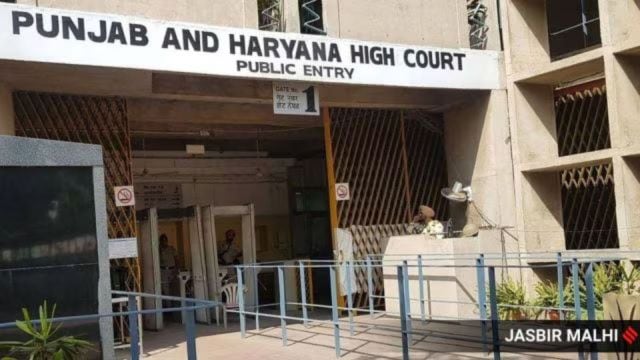Punjab and Haryana HC sets strict timelines for disciplinary action against govt employees
Court quashes 13-year-old proceedings against a retired Haryana official, says unexplained delays turn into ‘mechanisms of torment’ and violate constitutional rights.
 The high court highlighted that prolonged delays can lead to loss of evidence, fading memories, and unfair tilting of the balance against the accused. (File Photo)
The high court highlighted that prolonged delays can lead to loss of evidence, fading memories, and unfair tilting of the balance against the accused. (File Photo)In a significant ruling aimed at preventing prolonged harassment of government employees, the Punjab and Haryana High Court has directed that all disciplinary proceedings must be completed within one year, failing which they stand vitiated due to unexplained delays.
The order, passed by Justice Harpreet Singh Brar on October 13, came while hearing a plea by Khairati Lal, a former store keeper-cum-mandi inspector with the Haryana State Agricultural Marketing Board, who retired in December 2006. Lal had challenged a punishment order issued against him in May 2022, over 15 years after his retirement, for alleged misconduct related to wheat stock shortage during the 2002-03 crop year.
The case dates back to 2003 when the board alleged a loss of Rs 67.96 lakh due to wheat shortage under Lal’s watch. A charge sheet was served on him in January 2009, more than two years after his retirement. An inquiry followed, but the punishment, recovery of the full amount, was only imposed in 2022. Lal argued that initiating action post-retirement violated service rules and caused undue hardship, including withholding of his retirement benefits like gratuity and leave encashment.
Quashing the charge sheet and all subsequent proceedings, the court directed the authorities to release Lal’s dues with 7 per cent interest per annum from the date they became payable. “When delay is inordinate and remains unexplained by the department,” the judge observed, “the disciplinary proceedings in its entirety” are vitiated.
To prevent such issues, the court laid down clear timelines: charge sheets must be issued within a reasonable period; the inquiry concluded within six months; the punishing authority to decide within three months of the report; and appeals disposed of within three months. The entire process must end within one year at most, with any unexplained delay beyond this inviting adverse inference.
The court emphasised that delays in such cases not only prejudice the employee but also defeat the purpose of accountability. “Protracted enquiries breed inefficiency, demoralization, and distrust in the system thereby defeating the very purpose of disciplinary mechanism established to ensure that principles of efficiency, integrity and accountability are upheld,” it noted.
Citing previous Supreme Court judgments, the high court highlighted that prolonged delays can lead to loss of evidence, fading memories, and unfair tilting of the balance against the accused.
The ruling also directs chief secretaries of Punjab, Haryana, and the Union Territory of Chandigarh to issue instructions within six weeks and submit a compliance report within three months.
HC guidelines on timelines
• Charge sheet must be issued within a reasonable period.
• Inquiry must be concluded within 6 months of issuance of the charge sheet.
• Punishing authority shall decide the matter within 3 months of receipt of the inquiry report.
• Appellate authority shall dispose of the appeal within 3 months of filing.
• Entire process must conclude within 1 year at the most
• Administrative secretaries of departments, as well as heads of boards and corporations, to conduct quarterly reviews to ensure compliance.







